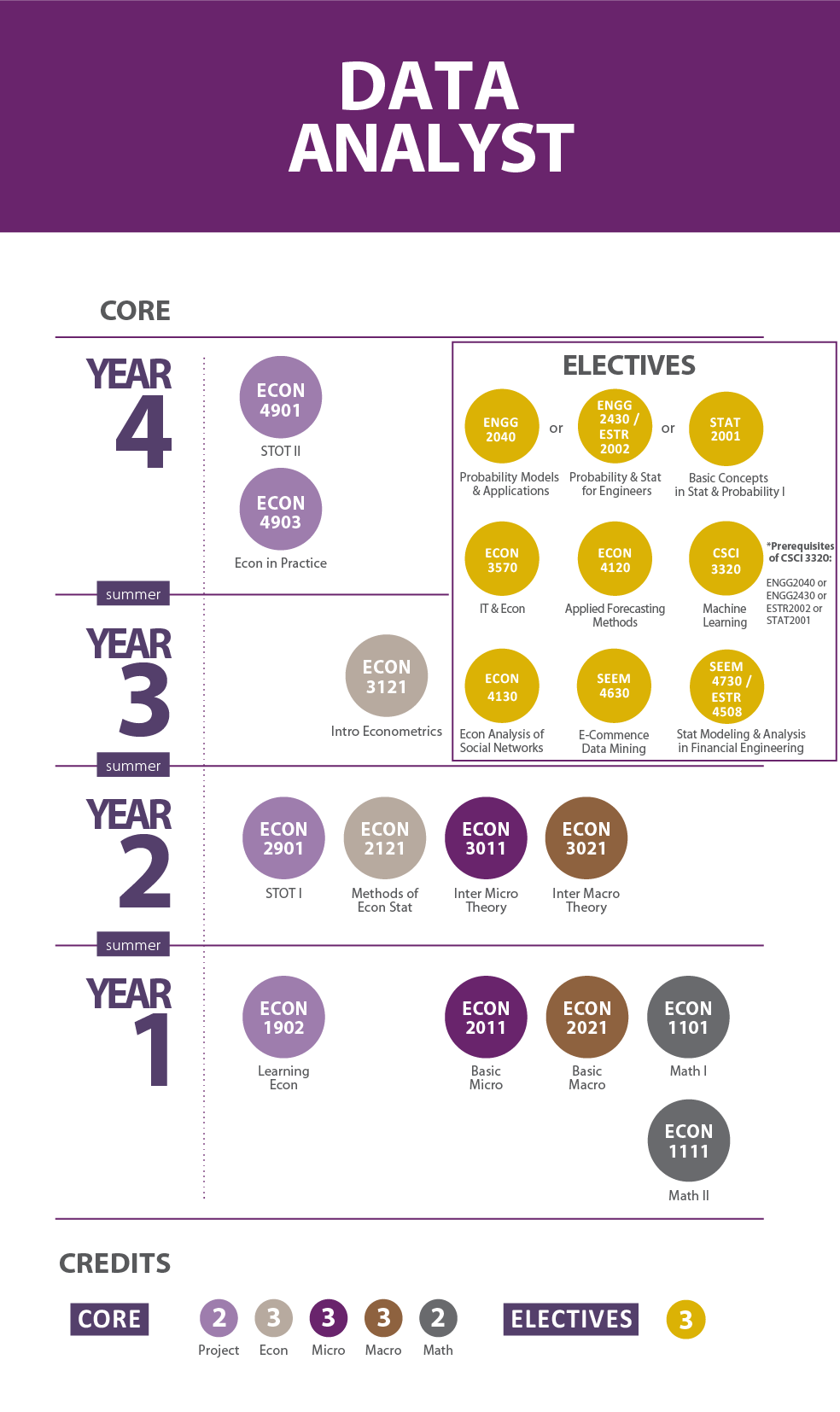Types of employers
Data-intensive firms such as platforms, or stock exchanges, and also the regulatory sector
Some examples of employers
Ebay, Google, Facebook, Tencent, Alibaba, Baidu, Oracle, Amazon, HKEx, SFC, MTR, etc.
Relevant courses

Find more info for non-economics requirements: https://www.cuhk.edu.hk/334/english/curriculum-structure/index.html
Study path
Put yourself in the shoes of any leading tech company. Think of the amount of data they need to process everyday. Think of some of the issues they would love to address with the data they have in hand. It makes it much easier for you to back out the kinds of skills you need to have to join them. Statistics toolkits are as important as a mindset of economics thinking. Making sense out of the data cannot be done solely with a statistical mindset. We need to think what humans are thinking when they cautiously or subconsciously generate data. Other than coursework, programming is vital. Your aim is not to be better than a professional computer programmer. Rather, your aim is to know what is and is not do-able with existing programming techniques. And also to get to know how one day you would manage a team of programmers.
Talk to as many people from outside of the economics department as possible to make sure you sharpen your language and communication skills. Your data not only comes from the datasets, but from daily conversations with people who get access to other datasets. Needless to say, ECON 2901 and 4901 are important opportunities for you to develop your tools in data-intensive topics. They are also things you can showcase in interviews. Again, exchanges and internships are indicators of your ability to cope with different environments. Do apply for them.
A rare thing some data-driven people do is to collect weird data just for the sake of collecting them. Data is generated everywhere every second and most are not recorded by anyone (think of the no. of times a particular phrase appears in major newspapers). Think of some smart ways to collect data no one seems to notice. You may be surprised how much you can talk about this "habit" in a job interview. Ultimately, it is about you cultivating a data-driven mindset grounded with solid theories and reasonable technical knowledge.